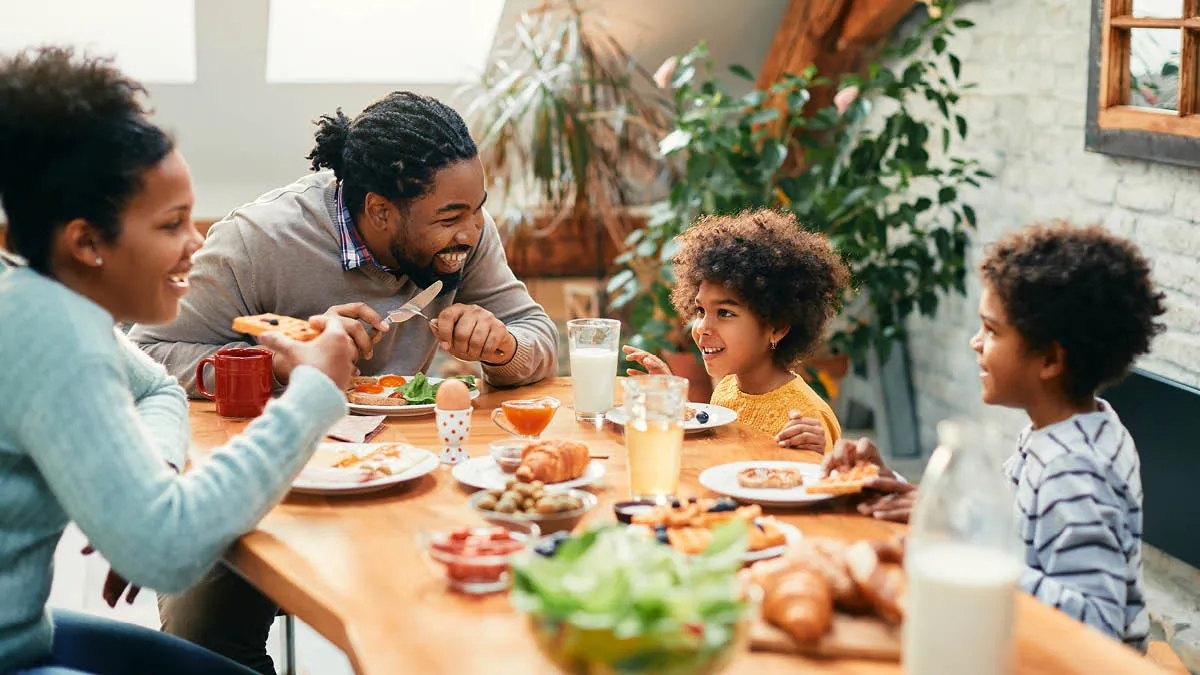- Für Dienstleister
- Für Makler
Einzelpersonen und Familien
Wen wir abdecken
- Im Ausland lebende Personen
- Familien
- Studenten
- Arbeiten im Ausland
- Rentner
- Über 60 Jahre
Top-Ziele, die wir abdecken
Krankenversicherung für Expats
- Wissenswertes zur Gesundheit von Expats im Hub
- Übersicht für Rentner zur internationalen Krankenversicherung
- Eine Übersicht zur internationalen Krankenversicherung für die Arbeit im Ausland
- Krankenversicherung für Expats im Detail
- Übersicht für Studenten zur internationalen Krankenversicherung
- Umzug ins Ausland während der Schwangerschaft
Krankenversicherung wählen
- Reiseversicherung oder internationale Krankenversicherung
- Krankenversicherung wählen
Länderratgeber
- Länderratgeber
FAQ
- Häufig gestellte Fragen
Arbeitgeber
Global Health Benefits Europa
- Krankenversicherungen für Arbeitgeber
- Cigna Inspire Versicherung
2 bis 149 Mitarbeiter
- Internationale Krankenversicherungen
Große Unternehmen
- Krankenversicherungen für große Unternehmen
IGO/NGO und Behörden
Themen
Einzelpersonen und Familien
-
Versicherungsschutzarten
-
Wo wir abdecken
- Argentinien
- Australien
- Österreich
- Brasilien
- Kanada
- Chile
- China
- Costa Rica
- Ägypten
- Frankreich
- Deutschland
- Griechenland
- Indien
- Indonesien
- Irland
- Italien
- Japan
- Kuwait
- Mexiko
- Niederlande
- Philippinen
- Portugal
- Singapur
- Südafrika
- Spanien
- Schweden
- Schweiz
- Thailand
- Türkei
- VAE
- Vereinigtes Königreich
- USA
- Vietnam
-
Ressourcen
- Wissenswertes zur Gesundheit von Expats im Hub
- Übersicht für Rentner zur internationalen Krankenversicherung
- Eine Übersicht zur internationalen Krankenversicherung für die Arbeit im Ausland
- Krankenversicherung für Expats im Detail
- Übersicht für Studenten zur internationalen Krankenversicherung
- Umzug ins Ausland während der Schwangerschaft
- Reiseversicherung oder internationale Krankenversicherung
- Krankenversicherung wählen
- Länderratgeber
- Häufig gestellte Fragen
-
Für Mitglieder
Arbeitgeber
-
Unsere Versicherungen
-
Für Mitglieder
IGO/NGO und Behörden
- Übersicht
-
Unsere Versicherungen
-
Für Mitglieder
Blog zum Thema Gesundheit
Für Makler
Happiness vs. contentment: pathways to a fulfilled and enriched life
Happiness vs. contentment: pathways to a fulfilled and enriched life
Ever wondered if you are truly happy? We meet founder and CEO of The Happiness Club, Jo Howarth, to understand the nuances of being happy and feeling content
Have you ever stopped to look at your life and thought: ‘You know what? I feel really content right now’? Perhaps you have all the things you have ever dreamed of – a loving family, a happy home, a fulfilling job, and enough in the bank for a rainy day.
Tapping into this feeling is something that can enable us to unearth the difference between happiness and contentment and ultimately enable us to bring more of it into our lives.
‘Having contentment is that feeling of ease and flow that everything in your life is fine and as it should be,’ explains founder and CEO of The Happiness Club, Jo Howarth. Jo works with clients around the world to support them on their journey to happiness through various online tools and webinars.
So, what's the difference between happiness and contentment?
‘Most people see happiness as a fleeting emotion – as something that comes along because something positive has happened. For example, you could be happy you got a new car or a promotion or someone has told you they love you,’ says Jo. However, it’s not as cut and dry as that. She has a slightly different definition to happiness:
‘Happiness is actually a way of life – it’s our natural state of being. The best analogy that I've heard for this is to imagine a beautiful clear blue sky. And then the weather starts to change and eventually, the sky is completely covered in clouds and you can't see the blue sky anymore. But the sky is still there, it hasn’t gone anywhere, it's just been covered up with clouds. That, for me, is what happiness is. It’s always part of us, but sometimes it gets covered up by cloudy thinking or cloudy patterns of behaviour and we lose sight of our own happiness – we lose sight of the blue sky,’ Jo shares.
So how does contentment differ from happiness?
While happiness is typically characterized by a more intense and fleeting emotion, contentment is a longer-lasting, stable sense of peace and satisfaction. For example, winning a competition or booking a holiday can evoke a sense of happiness, while contentment may arise from something more long-term such as living in a beautiful home, moving abroad or being part of a supportive community.
It’s about being clear on what both being content and being happy feels like for you to foster more of them in your daily life, advises Jo.
‘Awareness is the absolute key to happiness and contentment. If we are not aware of the differences in the ways that we feel, how do we strive to bring more of them in? When you understand the moments that bring you happiness, you can reach for them,’ says Jo.
‘Similarly, with contentment: understanding that state of true ease and calm in your life and what’s bringing that, will enable you to be aware of it and you’ll be able to access even more of it,’ she adds.

Do we need happiness and contentment and how can we experience them both?
In an ideal world, we want to be able to allow ourselves to experience both happiness and contentment. Feeling a sense of contentment allows us to live in the moment and be at ease with who we are and what we have, while happiness has even been linked to better health by improving our sleep, our diet and our cardiovascular health.
‘If you focus on fostering a sense of contentment in your life and are already in that state of mind, then those moments of happiness are easier to grab onto and savour,’ explains Jo.
However, Jo shares that it is the process of tapping into all of our emotions, observing them and looking at what triggered them that’s important when it comes to living a more content and happy life:
‘We need to experience all the emotions and all the states of being. We're here to experience the highs and the lows, ‘the good’ and ‘the bad’ (I use inverted commas because I don't believe anything's ‘good’ or ‘bad’) explains Jo.
Remember those clouds? It’s worth acknowledging that life isn’t blue skies at all times – and that’s ok. ‘What I teach people to do is to lean into however they're feeling. If the clouds come along, they come along for a reason. And because the clouds can feel difficult to sit with, we often try to pretend they're not there and we run away from them. But every single one of your emotions, every single one of those clouds, has a message for you. If we ignore them, then they keep coming back and we can’t experience true contentment,’ Jo explains.
‘If we sit with the clouds (or the difficult emotions) then we can move through them more easily and much faster. And hey presto, they clear and the blue sky is back – happiness is there, and it always has been,’ adds Jo.
Using gratitude and appreciation to bring more happiness and contentment
The easiest way to access happiness or contentment is by practicing appreciation and gratitude on a daily basis, advises Jo.
‘Appreciation, on a general level, would bring you to a state of contentment, quite beautifully. For instance, if you take the dog out for a walk and you just look around at the trees, the beauty of nature, you can tap into that sense of contentment and the feeling that all is well. It might not be fine all the time, because we're here to experience the ups and the downs, but fundamentally, life is good,’ says Jo.
Jo works with her clients to practice gratitude in order to harness moments of happiness: ‘Reminding yourself of the things in your life that you are grateful for – the people you love, the pets you adore, and so on – can bring us those pockets of happiness,’ she adds.

Are some of us happier than others?
While happiness and contentment are both positive emotional states, often associated with feelings of joy and satisfaction, Jo suggests that it is possible to have one without the other:
‘Happiness and contentment are two separate states, although extremely closely linked. You can be content with everything in your life, but not feel that fleeting emotion of happiness. Equally, you can feel that fleeting emotion of happiness without being generally content in your life,’ explains Jo.
You may know people who always appear to be happy or content in their life. It’s worth considering that we all have different journeys and experiences in the pursuit of happiness.
Part of the happiness equation can be as simple as looking at personality types; extroverted individuals, for instance, might get more happiness from social interactions such as meeting up with friends, while introverts may find greater happiness in spending time reading or visiting an art gallery by themselves. Understanding and embracing our personality traits and our own experiences can help harness the things that can truly bring us happiness and contentment, explains Jo:
‘We are all a combination of everything that has ever happened to us. We have all been conditioned since birth to believe certain things and to behave in certain ways, and we pick up our beliefs about ourselves, about the world, largely from the grown-ups that are around us when we're children,’ she adds.
‘If you go through life and everything comes to you easily and the people around you talk about how good life is and how fortunate you are, then you will probably find it easier to access that natural state of happiness and contentment later in life. However, if you have been surrounded by people who talk about how hard life is, then that's how you will face the world and it'll be harder for you to access that state of happiness and contentment,’ explains Jo.
Money and happiness
As the saying goes, ‘money can’t buy you happiness – but it helps’. Research shows that our financial situation can influence our happiness scale. A 2021 US study on 33.391 adults living in the US measured their happiness at various points throughout the day.
The results? The study drew two conclusions. One, that happiness levels were raised with greater earnings, and two, that for around 20% of the panel who were experiencing difficult life events and challenges such as bereavement or depression, happiness levels weren’t impacted by money. Previous studies suggest that social connections and supportive relationships have a more significant impact on long-term contentment than financial status.

Health, happiness and contentment
How we live our life, from how we nourish our bodies to how we move them, can significantly impact our feelings of happiness. You’ve likely heard of the ‘happy hormones’, endorphins and dopamine, both are released when we exercise. In fact, studies show that regular exercise, even as little as twenty minutes, can increase feelings of happiness.
And when it comes to mental well-being, practicing mindfulness can also enrich our sense of contentment, explains Jo.
‘Happiness starts in the mind. I encourage a lot of my clients to journal or practice mindfulness. What mindfulness does is help to increase our level of conscious awareness; it helps us to face those thought patterns and behaviour patterns that we've learned when we were little, question them and in time, unlearn them to bring a state of calm contentment,’ explains Jo.
‘By looking after yourself holistically from the social media you consume and the people you spend your time with, to challenging unhelpful thought patterns, you can access that beautiful, innate sense of happiness that is flowing through you all the time. It can just get covered up with those clouds from time-to-time,’ Jo shares.
So what is the goal?
Of course the long-term goal is to reach peak contentment in your life and experience moments of happiness peppered throughout. That said, really asking yourself what brings you happiness or contentment and being open to it is key to bringing more of it into your daily life.
‘As human beings, since we were cavemen, we've been wired to see and hold on to the negative (or danger) rather than to see or hold on to the positive, which is why some people find it so hard to access either happiness or contentment, explains Jo.
Remember, happiness and contentment are accessible at all times. But with either of them, you need to foster an attitude that is receptive to feeling them. Focus on this and you may find that you are able to experience a happier, more content life.
Haben Sie eine Frage? Wir sind Ihnen gerne behilflich.
If you need expat health insurance alongside your travel insurance, we have options to suit your needs and budget.
Verwandte Artikel
Kontakt
Hier finden Sie die richtige Information - Von unsrer Verkausfabteilung bis zu generellen Information, einschließlich Kontaktinfromatinon für existierende Cigna Kunden.
KontaktinformationenBeliebte Links
Ressourcen
© 2025 Cigna Healthcare. Alle Rechte vorbehalten.
* Bitte beachten Sie, dass dies eine Darstellung der verfügbaren Leistungen ist und die für jede Leistung geltenden spezifischen Bedingungen und Ausschlüsse hier nicht enthalten sind. Die Leistungen können geändert werden. Einige Leistungen sind Teil des optionalen Moduls. Ausführliche Informationen finden Sie im Kundenleitfaden.
Diese Website wird zur Verfügung gestellt von Cigna European Services (UK) Limited, einem in England und Wales eingetragenen Unternehmen mit Sitz 13th Floor, 5 Aldermanbury Square, London EC2V 7HR und Registernummer 00199739. Der Name und das Logo von Cigna Healthcare sowie andere Cigna Healthcare Marken sind Eigentum von Cigna Intellectual Property, Inc. und für die Verwendung durch die Cigna Group und ihre operativen Niederlassungen lizenziert.
Bei der Auswahl dieser Links verlassen Sie Cignaglobal.com. Cigna Healthcare hat keine Kontrolle über den Inhalt oder die Links der verlinkten Seiten.

